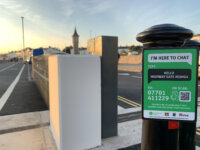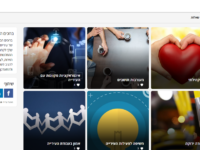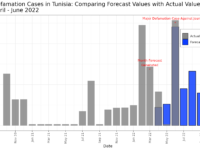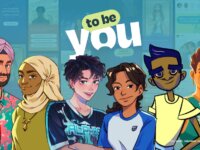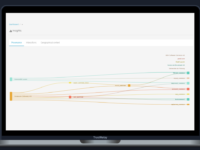The Transparency+ Portal is a digital platform of the Portuguese state, where citizens can access easy-to-read and updated information on public spending in an accessible way, combining data science and storytelling. Launched in 2021, the platform is now a reference resource for monitoring European funds, State and local budgets, and public contracts. In a world often perceived through lens of mis/disinformation, Transparency+ is building trust by nurturing civic engagement and open government.
Innovation Tag: Citizen Engagement
The Environment Agency has a responsibility to protect communities from flood and coastal risks. In the past, the agency has struggled to scale their public engagement and reach their diverse audiences, while also retaining a local relevance. Hello Lamp Post was brought on to provide an interactive, live 24/7 conversational channel to educate and inform the public on flood safety, in high-risk locations around the South West of England and Newcastle.
UK Government is investing in innovative public policy design expertise. Public policy design has been gathering momentum over the past 10 years. But 2022 was a landmark year for public policy design. For the first time, the UK’s government is sponsoring major networks that champion design as key for making policy and services that drive outstanding public value.
Case Study
‘Con Vos’ Network: Digitalization for Effective Governance. Community Markets to Improve Access…
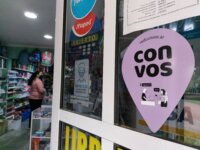
When applying for state aid or other services without the means or knowledge to do it online due to the digital gap, it usually takes a day or waiting in queues and filling out paperwork. Communities have thought and offered a grassroot solution: store owners helping their peers to get online procedures done in their business, in exchange for a small fee. It is a simple innovation, yet effective when it comes to decentralize public services, foster digital inclusion, and strengthen local markets
Strategic planning has turned into bureaucracy circus, without really moving the needle. The City of Ashdod has pioneered a new strategic planning model, in collaboration with Insights.Us. The new methodology enables city leadership to define key measurable outcomes, harnessing cross-silos action plans. The digital platform was designed to celebrate success stories, and connect the community, allowing an inclusive whole-of-city approach.
The hard-fought gains of democratization have come under attack in many countries. To reverse this trend, policymakers and civil society need new tools to navigate sophisticated forms of democratic erosion. We combine recent advances in machine learning with massive webscraping to produce high-frequency data and forecasts predicting where democratic backsliding will occur and the specific forms it will take. We equip pro-democracy forces with advanced warning to guide more strategic responses.
With the Quality Tools an organisation can evaluate, monitor and compare the quality and use of its services within and between organisations. The tools include a Self-assessment, Customer Feedback and Utilisation Rate Measurement tool and are free of charge. The tools were developed primarily for public sector organisations to help them develop customer-oriented digital services and improve knowledge-based management. On a national level the tools provide data on the state of digitalisation.
Educating youth about diversity and the importance of empathy is difficult and dull using traditional classroom methods. Our team of unpaid volunteers built an interactive fiction mobile game, where youths can experience life as somebody unlike themselves, make choices, and reflect on how we treat each other. The feedback has been tremendous - teachers, students, and even adults love the stories and our data analytics indicates real positive impact on individuals who have played the game.
Case Study
Pink Passes – Enhancing Women’s Mobility and Workforce Participation through Improved Public…
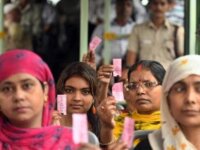
Women workforce participation is a key enabler of social development and economic growth. In developing countries, female labour workforce participation has continued to be sub-optimal due lack of avenues to support women’s mobility. Pink Passes along with universal deployment of bus marshals and ICT features provide free travel to women in a safer environment in public buses of Delhi to encourage their mobility. It increases women’s window of opportunity to become part of labour workforce.
The Government of the city of Lucerne is piloting a new "digital cooperative" model, which allows public sector, private sector and citizens to contribute with data and get remunerated (financially or otherwise). Through this digital coopoerative, the population is able to tackle important and/or urgent issues that affect all its residents using data-driven decisions. For the initial stage, the data and issue tackled is related to mobility.

